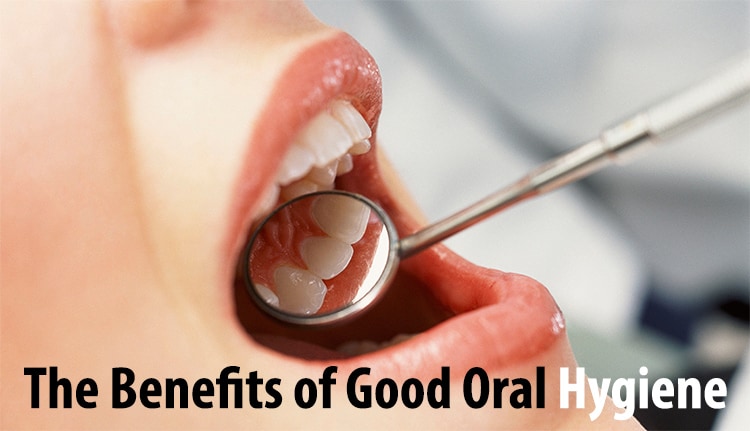Table of Contents
While we may not think about it, good oral hygiene can help you reduce the risk of many different health problems. Among these are reduced risks for cavities, gum disease, and tooth decay. Furthermore, proper oral hygiene reduces your risk of developing a variety of health problems including heart disease, diabetes, and diabetes-related diseases. To learn more about the benefits of good oral hygiene, read on. And remember, you’ll never regret it.

Here are 8 benefits of good oral hygiene:
Reduced Risk Of Gum Disease
The first step in reducing your risk of gum disease is to make sure that you practice good oral hygiene every day. This means brushing your teeth at least twice a day, using a soft-bristled toothbrush to remove plaque and food debris. You should also be brushing the gum line and tongue. If you smoke, it’s especially important that you stop. Taking care of your teeth will make it easier to fight infections.
Besides the obvious benefits of maintaining good oral health, studies also show a link between poor oral hygiene and serious health issues. Regular teeth cleanings can help prevent gum disease, keep your smile beautiful, and even reduce your risk of cardiovascular disease. In fact, studies have shown that gum disease is linked to poor mental health. Inflammated gums release substances that can damage brain cells and even cause memory loss and dementia. Bacteria present in the mouth can also enter the bloodstream, leading to various illnesses, including gum disease.
A study published by McGill University found that poor oral hygiene is linked to more severe health complications and even death. The results suggest that smoking is a leading cause of gum disease in people with diabetes. Although tobacco smoking is unhealthy for everyone, people with diabetes are at a higher risk of developing gum disease. Researchers believe that smoking increases the risk of developing periodontitis. To find out if you have gum disease, you need to measure the pockets around your teeth. If you’ve noticed that your gums are too small, you should visit a dentist for a thorough check-up.
Prevents Cavities & Gum Disease
While the majority of dental problems are avoidable, good oral hygiene is crucial for your overall health. The most basic preventative measures are brushing and flossing daily. A dental checkup is also important. While most people don’t look forward to the dentist’s drill, regular checkups and cleanings are essential to preventing cavities and gum disease. By practicing good oral hygiene, you can help your children avoid developing cavities and gum disease and maintain a healthy mouth for life.
Smoking is the number one cause of gum disease. Avoid sugary foods and drinks, which feed the bacteria that cause decay. Brushing at least twice daily with fluoride toothpaste can help prevent gum disease. In addition, brushing your teeth with a soft-bristle toothbrush should include small circular motions and short back and forth strokes. Flossing should be done after brushing and is especially effective if you smoke. If brushing isn’t possible, use a water flosser or pre-threaded dental flosser. Electric or battery-operated toothbrushes are also recommended for people with gum disease.
People also read : ProDentim Reviews | #1 Way To Rebuild Gums and Teeth
Reduced Risk Of Tooth Decay
One of the easiest ways to reduce the risk of tooth decay is to practice good oral hygiene. By brushing and flossing regularly, you can keep your teeth healthy. And, of course, limiting sugary foods and drinks is also very important. Besides avoiding the foods and drinks that cause tooth decay, eating a low-sugar diet is also an excellent way to reduce the risk of dental caries.
When you eat food rich in sugar, the bacteria in your mouth begin to attack your tooth’s enamel and dentine. These bacteria feed off sugar, which turns into acid. This acid eats away at the enamel and causes cavities, which eventually require tooth removal. You can reduce your risk of tooth decay by following a healthy diet and drinking plenty of water. You should also use toothpaste with fluoride, as it is a proven way to reduce the risk of dental decay.
Reduced Risk Of Heart Diease
People with poor oral hygiene may be at risk for developing heart disease, but they also may have fewer other health problems. Studies show that people with gum disease and periodontitis have a significantly higher risk of heart disease. In fact, in a study conducted in 2016, nearly 800 people with periodontitis had a higher risk of developing heart disease than those without the condition. In addition, people with good oral hygiene may have lower blood pressure levels, which can lead to less overall heart disease.
A recent study revealed that adults with two or more missing teeth had a 23 percent increased risk of developing heart disease. This was true for adults 45-69 who had lost two or more teeth within eight years. Additionally, oral health symptoms can be signs of health issues in other parts of the body. However, patients who do not have regular dental appointments are more likely to miss these signs and develop cardiovascular diseases.
Keeps Your Bright Smile
Maintaining good oral hygiene is essential to keeping your smile healthy and beautiful. It will help you to maintain a white, pearly smile while smelling fresh. It will also help prevent gum disease and tooth decay. Good oral hygiene also means brushing and flossing your teeth daily, and flossing your tongue as well. This will help keep your teeth and gums healthy and will prevent a host of other issues. Whitening toothpastes can remove surface-level stains and hygienists can scrape away surface stains during routine dental cleanings.
The Colgate Bright Smiles Bright Futures program has helped reach more than 50 million children. It provides free dental screenings, oral health education, and treatment referrals. The company is committed to reaching 100 million children by 2010.
Reduced Risk Of Diabetes
Recent studies have linked good oral health with reduced risk of diabetes. Those who brush and floss their teeth twice daily had an 8% lower risk of diabetes, compared to those who did not. The benefits of good oral hygiene were more pronounced for younger adults and women, and brushing was found to be protective against diabetes in both men and women. For people with diabetes, Dr. Goyal recommends brushing and flossing twice a day and undergoing dental checkups at least twice a year.
While diabetes is a condition that affects the balance between insulin and blood sugar, oral health is just as important as physical health. Research has linked periodontitis to cardiovascular disease, respiratory disease, and rheumatoid arthritis. Additionally, diabetes can affect the eyes, nerves, kidneys, and heart. Hence, it is important to maintain good oral hygiene.
See more: 10 Best Foods That Improve Blood Sugar And Control Diabetes
Reduced Risk Of Lung Disease
There are several factors that increase the risk of developing lung disease, including age and a family history. These factors can be mitigated, however, by making changes to lifestyle. Lifestyle changes that increase your risk include smoking and exposure to second-hand smoke. Exposure to harmful substances can also increase your risk. Allergic reactions to certain foods and chemicals may trigger symptoms of respiratory problems. Vaccination against these illnesses is an important first step in reducing your risk of developing lung disease.
Reduced Risk Of Alzheimer’s
Researchers have linked major head injuries to the increased risk of Alzheimer’s disease. In addition, cholesterol and blood pressure are known to raise your risk of developing the disease. There is no one specific drug that can lower your risk of Alzheimer’s. In addition to lifestyle choices, medications may also affect your risk. For instance, lowering your cholesterol levels can reduce your risk by as much as a third.
Vaccines may have a similar impact. In a recent study, a flu vaccine significantly reduced the risk of developing Alzheimer’s by up to 40% among people aged 55 and older. People who consistently received the vaccines had the lowest rates of the disease. Flu vaccinations have also been linked to a decreased risk of Alzheimer’s in past studies. Vaccines against polio, tetanus, and herpes are also linked to a lower risk of developing the disease.
Learn more: The Brain Booster Reviews | The 3 vital keys to restoring fantastic brain health


